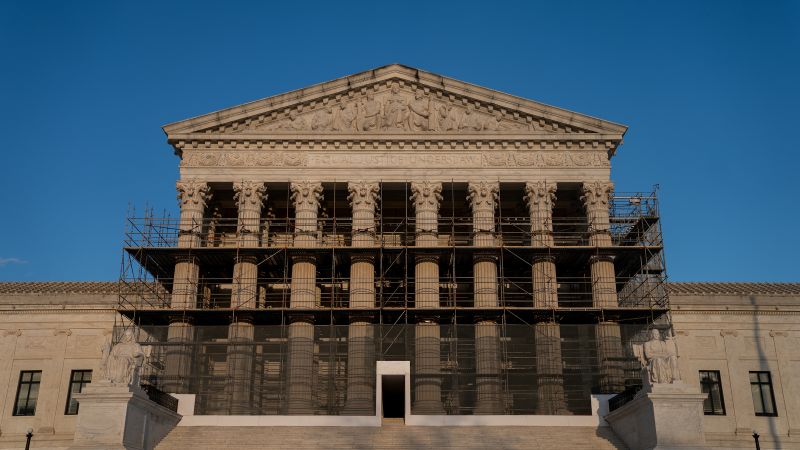CNN
—
The Supreme Court sided with a former commercial truck driver Wednesday who was fired after failing a drug test he said was caused by a “CBD-rich medicine” in a decision that could make it easier to sue companies under organized crime laws.
Douglas Horn sued the manufacturers of a CBD product called “Dixie X” that the companies proclaimed included no THC, the psychoactive ingredient in marijuana. Horn took the product to manage debilitating pain after a serious accident, but he later failed a drug test and was fired. The Supreme Court’s decision will allow Horn’s case to move forward in lower courts.
Justice Amy Coney Barrett wrote the opinion for a 5-4 majority that included both liberal and conservative justices.
“When all is said and done, Medical Marijuana is left fighting the most natural interpretation of the text – that ‘injured’ means ‘harmed’ – with no plausible alternative in hand,” Barrett wrote. “That is a battle it cannot win.”
Horn sued under the Racketeer Influenced and Corrupt Organizations, or RICO, Act, a 1970 law targeted at organized crime that also authorizes civil lawsuits – and allows plaintiffs to collect triple damages – for harm to their business or property. The question for the Supreme Court was whether Horn’s loss of employment qualified as a business harm.
Medical Marijuana, Inc., and other companies involved in distributing Dixie X, argued that Horn’s injury was a personal one – and therefore not a business or property harm as required in the law. Congress, the companies argued, didn’t intend for Americans to be able to collect triple damages under the RICO law for run-of-the-mill injury claims.
Horn sued in the Western District of New York in 2015, alleging in part that Medical Marijuana Inc. engaged in mail and wire fraud. The district court ruled against Horn, but the New York-based 2nd US Circuit Court of Appeals allowed his suit to move forward.
The companies appealed to the Supreme Court.
Allowing Horn to sue, the companies said, would vastly expand the number and type of “civil RICO” lawsuits permeating through federal courts. Concern over a flood of new lawsuits appeared to resonate with several of the court’s conservatives during the oral arguments in October.
But other justices suggested during arguments that a loss of employment would fall under what most Americans view as an ordinary definition of “business.”
“If you’re harmed when you lose a job, then you’ve been injured in your business, haven’t you?” Justice Elena Kagan, a member of the court’s liberal wing, asked the lawyer for the companies.
The law, Kagan said, “just says if you’ve been injured by a RICO violation in your business, which includes your employment, then you’re entitled to threefold damages.”
President Richard Nixon signed the federal RICO Act in 1970 to give prosecutors more power to go after the heads of organized crime families. Several states have enacted their own versions of the law. In Georgia, prosecutors were attempting to use a state RICO law to prosecute Donald Trump for his efforts to overturn the 2020 election results there.
This story has been updated with additional details.

